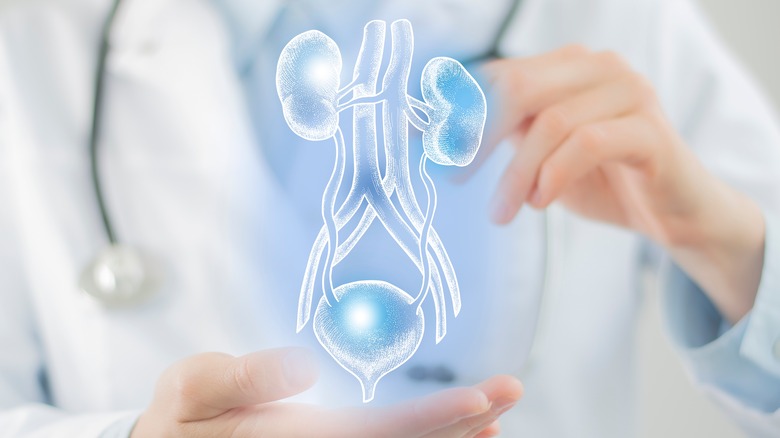What To Expect When You Go For A Kidney Scan
About to get your first kidney scan? It may sound a bit daunting and scary, but the good news is you have nothing to worry about. Also known as a renal scan, it is a painless process of getting images of your kidneys to check their functions and looks, per WebMD. This procedure is only done when no other imaging tests, such as MRI or ultrasound, offer in-depth info about the condition of the kidneys.
If you have any signs of chronic kidney disease such as nausea, dry skin, loss of appetite, problems with peeing, or breathing issues, you may be asked to go for a kidney scan, explains MayoClinic. In other words, doctors recommend a kidney scan if they suspect you have abnormal kidney function or the blood supply is being interrupted (via Johns Hopkins Medicine). This process has limited to no risks. You might have temporary discomfort from the small amount of radioactive material — the tracer — that's used for the scan.
What should you know about kidney scans?
The kidney scan is performed by injecting a small dose of radioactive fluid into your veins and then passing you through a scanner that looks a lot like a CT scan machine, according to Cleveland Clinic. A special camera takes many images and sends them to the computer for analysis. Based on the results, the doctors devise a treatment plan to prevent kidney failure or let the patient know if they require kidney transplants.
Before the kidney scan, you may have to warn the radiologist about certain factors that could interfere with the results, such as anything you might be allergic to, suggests John Hopkins Medicine. If you're pregnant, breastfeeding, or had another radioactive material injected recently, you will want to share that information beforehand. Also, let them know about any drugs you take that could potentially disrupt the results. After being injected with the radioactive material, be prepared for a metallic taste in your mouth (via WebMD). The entire test may last for half an hour to two hours, depending on the condition of your kidneys. You may have to increase water intake for up to a day following the kidney scan, in order to help flush your body, according to WebMD.


